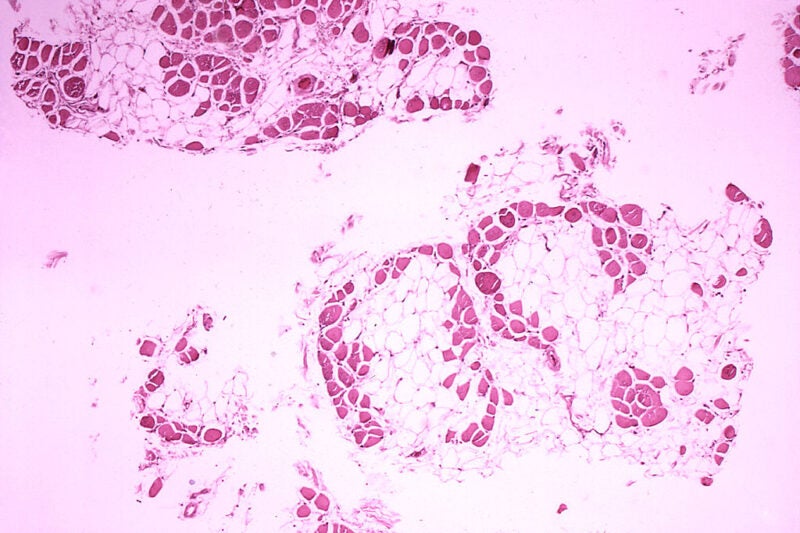
The US Food and Drug Administration (FDA) has cleared the Investigational New Drug (IND) application of RegenxBio to initiate a first-in-human clinical trial of RGX-202 to treat Duchenne muscular dystrophy (Duchenne).
RGX-202 is a one-time gene therapy that leverages the NAV AAV8 vector of REGENXBIO.

Discover B2B Marketing That Performs
Combine business intelligence and editorial excellence to reach engaged professionals across 36 leading media platforms.
It will deliver a transgene for a new microdystrophin that comprises the functional elements of the C-Terminal domain observed in naturally seen dystrophin.
The company anticipates commencing the trial in the first half of this year with study centres planned to be launched in the US in the initial stage.
Additional trial centres will subsequently be opened in Canada and Europe.
The open-label, multicentre Phase I/II dose-escalation and dose-expansion AFFINITY DUCHENNE study will assess the safety, clinical efficacy and tolerability of a single intravenous (IV) dose of RGX-202 in Duchenne patients.

US Tariffs are shifting - will you react or anticipate?
Don’t let policy changes catch you off guard. Stay proactive with real-time data and expert analysis.
By GlobalDataThe dose-escalation phase will have six ambulatory, paediatric subjects aged four to 11 years with Duchenne enrolled in two arms to receive either 1×10¹⁴ genome copies (GC)/kg body weight and 2×10¹⁴ GC/kg body weight.
Following an independent safety data analysis for each arm, a dose-expansion phase is expected to enrol up to six additional subjects in each cohort.
RGX-202’s safety, immunogenicity analysis, pharmacodynamic and pharmacokinetic measures and strength and functional evaluations are the endpoints of the trial.
REGENXBIO chief scientific officer Olivier Danos said: “Additional therapeutic options are still needed for the treatment of Duchenne, and our trial design follows compelling evidence from preclinical studies which demonstrated that one-time treatment with RGX-202 can express meaningful levels of a novel, functional microdystrophin protein in muscle, and showed significant improvements in muscle force and function in animal models.”
Duchenne is a rare genetic disease caused by mutations in the gene responsible for producing dystrophin.
Last October, the company reported initial data from the Phase II ALTITUDE trial of RGX-314 for treating diabetic retinopathy without centre-involved diabetic macular oedema.
Cell & Gene Therapy Coverage on Clinical Trials Arena supported by Cytiva.
Editorial content is independently produced and follows the highest standards of journalistic integrity. Topic sponsors are not involved in the creation of editorial content.


